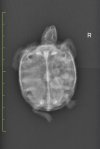Tortoisesarecool
Active Member
Hello everyone! I read about bladder stoned and I got very spooked. I was wondering if a tortoise was beginning to develop bladder stones, how would I know? I know they don't really eat or defecate but how long until you need to worry?
